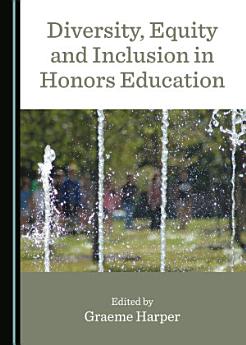Diversity, Equity and Inclusion in Honors Education
About this ebook
The Organization for Economic Co-Operation and Development (OECD), in its Ten Steps to Equity in Education, notes that inclusion is intertwined with fairness. How can honors education—and in the case of the discussions in this book, largely honors in US higher education—promote fairness, be diverse, and support equity? If it does not do so, how can it at all claim to be offering a principled version of what the National Collegiate Honors Council (USA) says are “opportunities for measurably broader, deeper, and more complex learning-centered and learner-directed experiences for its students”?
In 2015, the National Society for Minorities in Honors (www.nsfmih.org) was launched in the USA to specifically explore, support and promote diversity, equity and inclusion in and across honors colleges and programs. The first annual NSFMIH conference was held at Oakland University, Michigan. This book began at that inaugural conference, and has been enhanced by enthusiastic contributions beyond that event as well.








